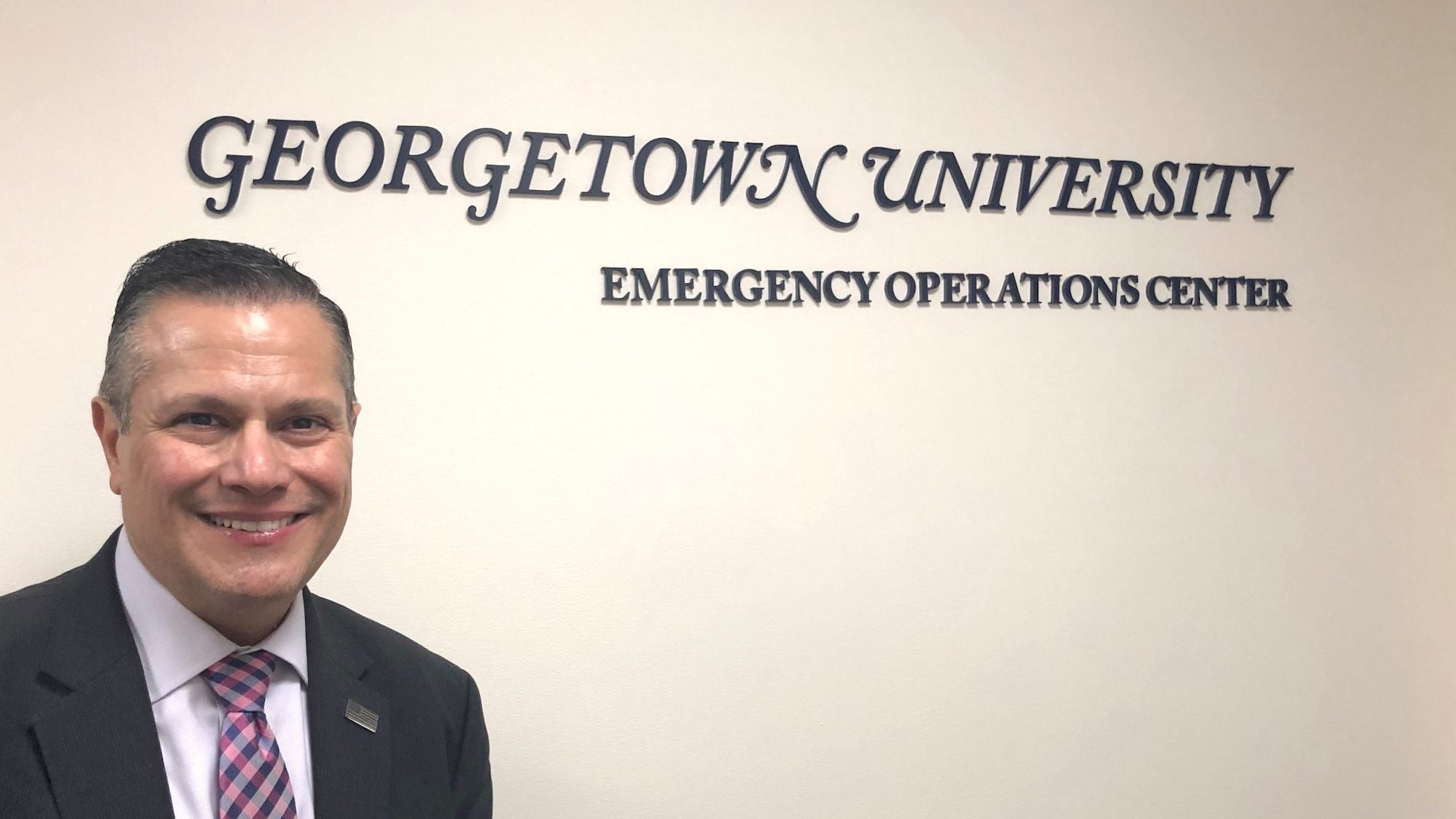What are the main responsibilities of your role?
The Office of Emergency Management provides guidance to Georgetown University and its various stakeholders in preparing for, preventing, mitigating, responding to and recovering from emergencies and disasters that could impact our community. We accomplish this through a variety of activities – planning, training, exercises and coordinating activities during an emergency response. We also work to educate members of the university community – students, faculty and staff – about emergency preparedness.
How have you worked with the university’s chief public health officer and public health team to prepare for the fall 2020 semester?
Dr. Ranit Mishori and I co-lead the university’s Public Health COVID Operations Unit. We have worked with a variety of stakeholders since the spring, when COVID-19 first threatened our community and on plans for the fall 2020 semester. We worked on a comprehensive public health and safety plan and quickly developed the capability to perform various public health functions, including testing, case investigation, contact tracing and the ability to rapidly isolate or quarantine, in order to quickly identify cases and contacts in our community and control spread. We also work closely with the DC Department of Health to ensure everything we do aligns with their guidance.
What responses to the COVID-19 pandemic have been most beneficial for Georgetown?
The university quickly scaled-up its response capabilities using Redeploy Georgetown, which allowed us to gain resources from across the organization. These redeployed staff gave us the ability to perform critical public health functions, and their help has been indispensable. In addition, the collaborative nature of our planning and response activities has really gone a long way in better-enabling us to respond to future emergencies. We have built strong relationships, and those will serve us well, no matter the future threats we face.
How has the increase in virtual learning changed the university’s approach to emergency management?
I can tell you that the virtual environment has impacted everything we do, from our approach to preparedness to how we conduct our everyday work. The backbone of emergency management is constant collaboration and partnership – most often accomplished in-person at planning meetings, exercises, etc. We have all had to adjust to working virtually while at the same time trying to engage the communities we serve – it is definitely challenging. We have done virtual COVID-related exercises and planning sessions, and they have gone very well. Hopefully, in the spring semester, we can build on that a bit and do more preparedness outreach to the students living on-campus.
What kinds of resources do you and the emergency management office use to monitor and keep the Georgetown community safe?
A big part of the emergency manager’s work involves anticipating and planning for threats and hazards that are likely to impact our community. We accomplish this by working very closely with our local and regional partners, analyzing and monitoring for intelligence on potential threats and utilizing various real-time tools that enhance situational awareness of imminent threats, including weather-related emergencies.
As the pandemic, election season and natural disasters intersect, what safety advice do you have for Georgetown community members around the country?
I like to say emergency preparedness is a journey, not a destination – we are never there, never finished. So, we have an ongoing pandemic, concerns about the upcoming election, a never-ending string of natural disasters – all of which can seem overwhelming even to the most experienced emergency manager. But, the preparedness steps for many, if not all threats, are very similar – have a plan and learn what to do when an emergency happens, prepare an emergency kit, stay informed and take action when needed. Folks can visit the emergency management website for lots more information on the steps to becoming prepared and can always contact me for more information.
